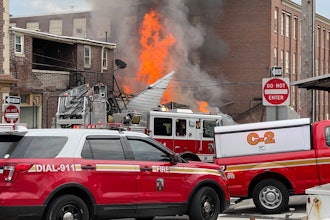Northbridge, Mass. Foam Manufacturer Agrees to Reduce Air Emissions and Pay A $127,500 Penalty to Settle Clean Air Violations (MA)
(Boston - July 14, 2011) A Northbridge, Mass. company that produces hard foam products has agreed to strictly limit air pollution emissions from its manufacturing facility and pay a $127,500 penalty in order to settle claims by the US Environmental Protection Agency and the US Department of Justice that it violated federal Clean Air laws.
In a settlement filed this week in federal district court, Polyfoam, Inc. agreed to install a new air pollution control system for volatile organic compound (VOC) emissions at its facility in Northbridge. At this facility, Polyfoam uses expandable polystyrene beads, which emit VOCs, in order to manufacture shape-molded foam products such as insulated food-shipping containers and protective foam packaging for electronic appliances.
The United States’ case complaint asserts that Polyfoam miscalculated and underreported its VOC emissions from at least 2002 to the present. Polyfoam’s actual VOC emissions exceeded 50 tons per year in each of these years, in violation of the company’s state air permits. Polyfoam also triggered Clean Air Act requirements for state-of-the-art pollution limits that the company failed to meet.
Under the settlement, which requires court approval, Polyfoam will meet a strict new VOC emission limit by installing a pollution control system that will incinerate VOC emissions with a regenerative thermal oxidizer. The new system will reduce VOC emissions from Polyfoam’s manufacturing processes by about 85%. Polyfoam will also obtain new federally-enforceable air permits reflecting its new VOC control requirements.
VOC pollution, a main cause of ground-level ozone and smog, is of special concern in Massachusetts. Ground-level ozone can aggravate asthma and damage lung cells, and may cause permanent lung damage. Massachusetts does not meet EPA’s national ozone standards and Polyfoam’s excess VOC emissions have contributed to Massachusetts’ failure to attain these standards.
This is the second CAA enforcement case involving hard foam manufacturers that EPA New England has settled in the last two month – on June 7, 2011, EPA announced the lodging of a judicial consent decree with Polar Industries from central Connecticut involving similar CAA violations.
###






















